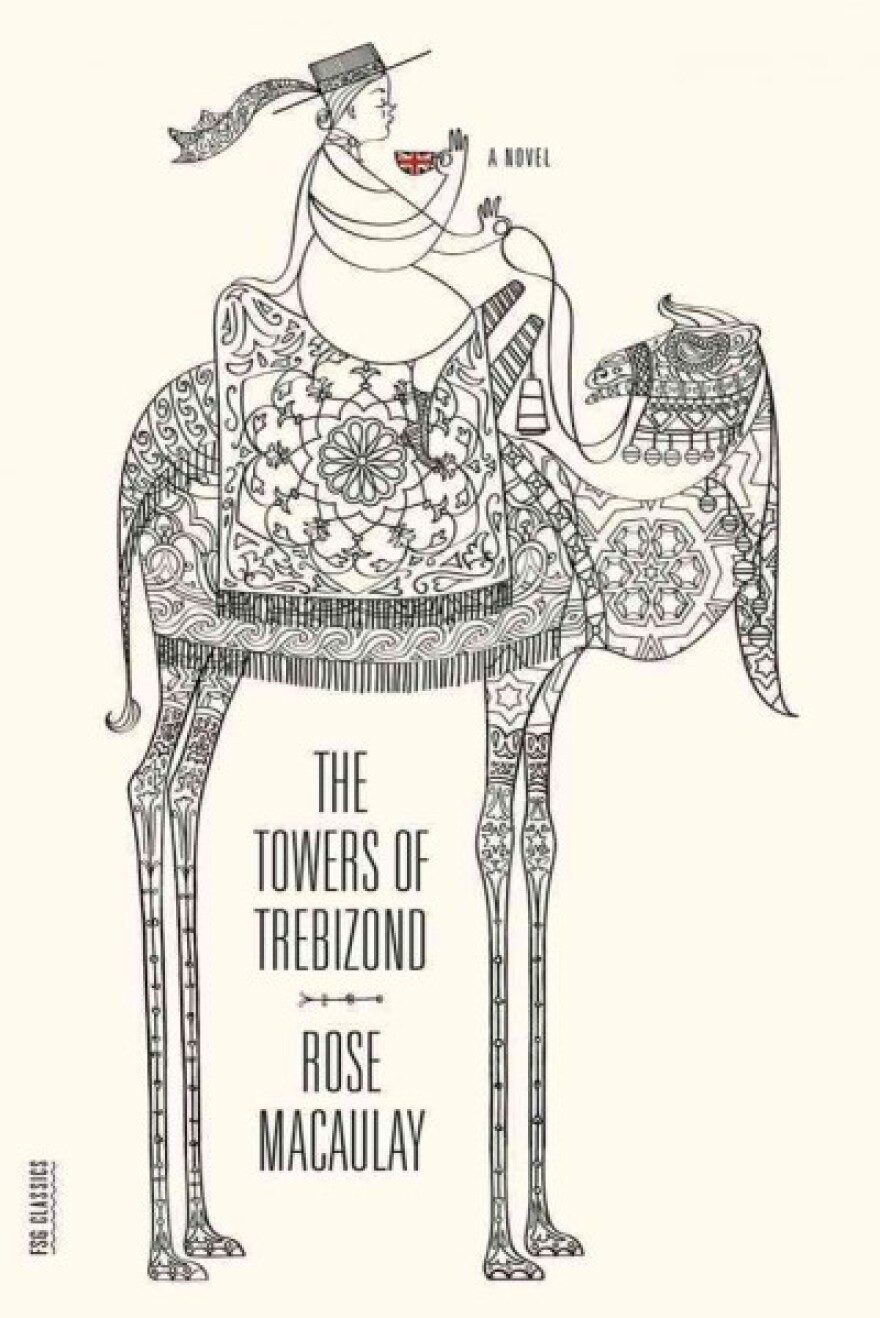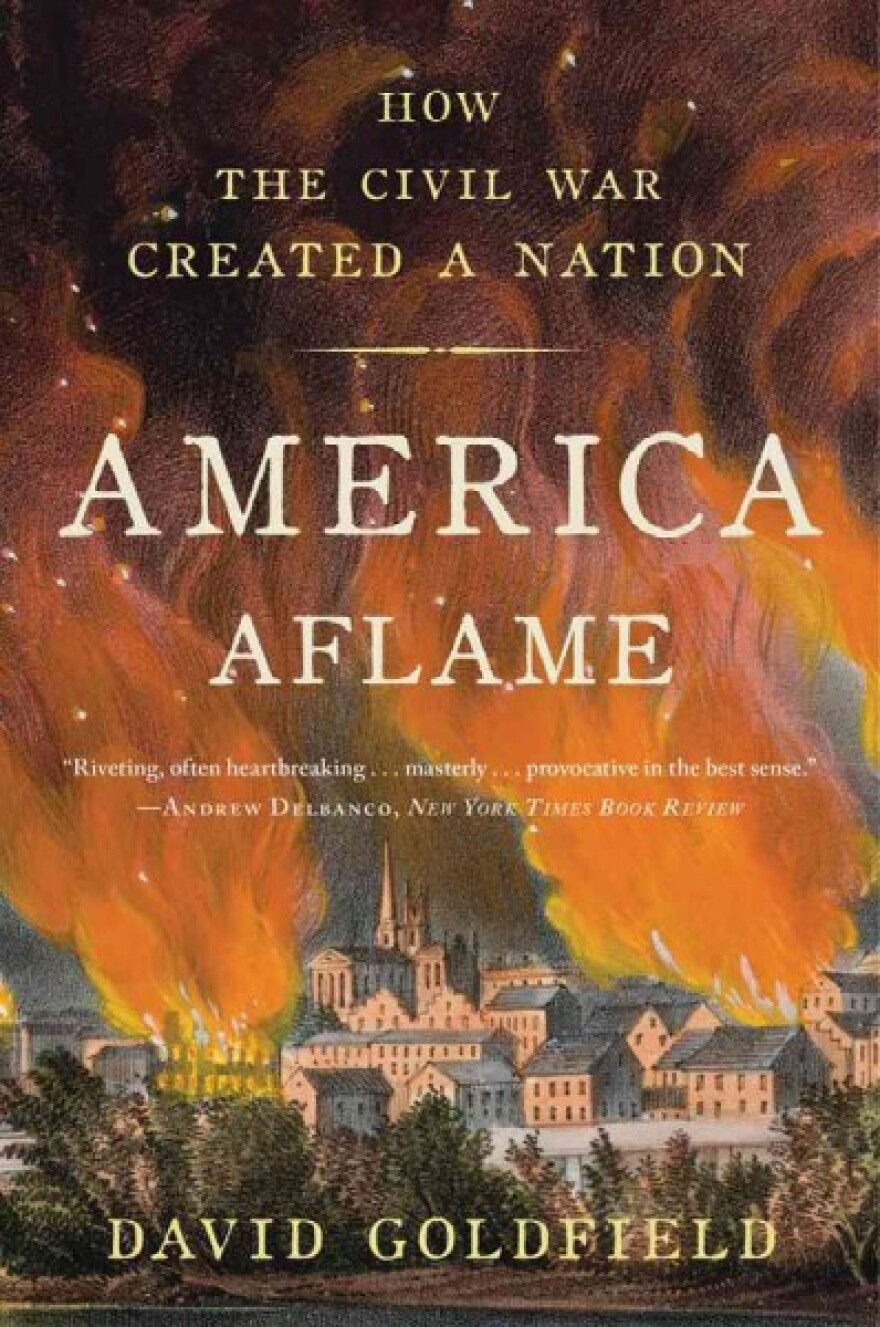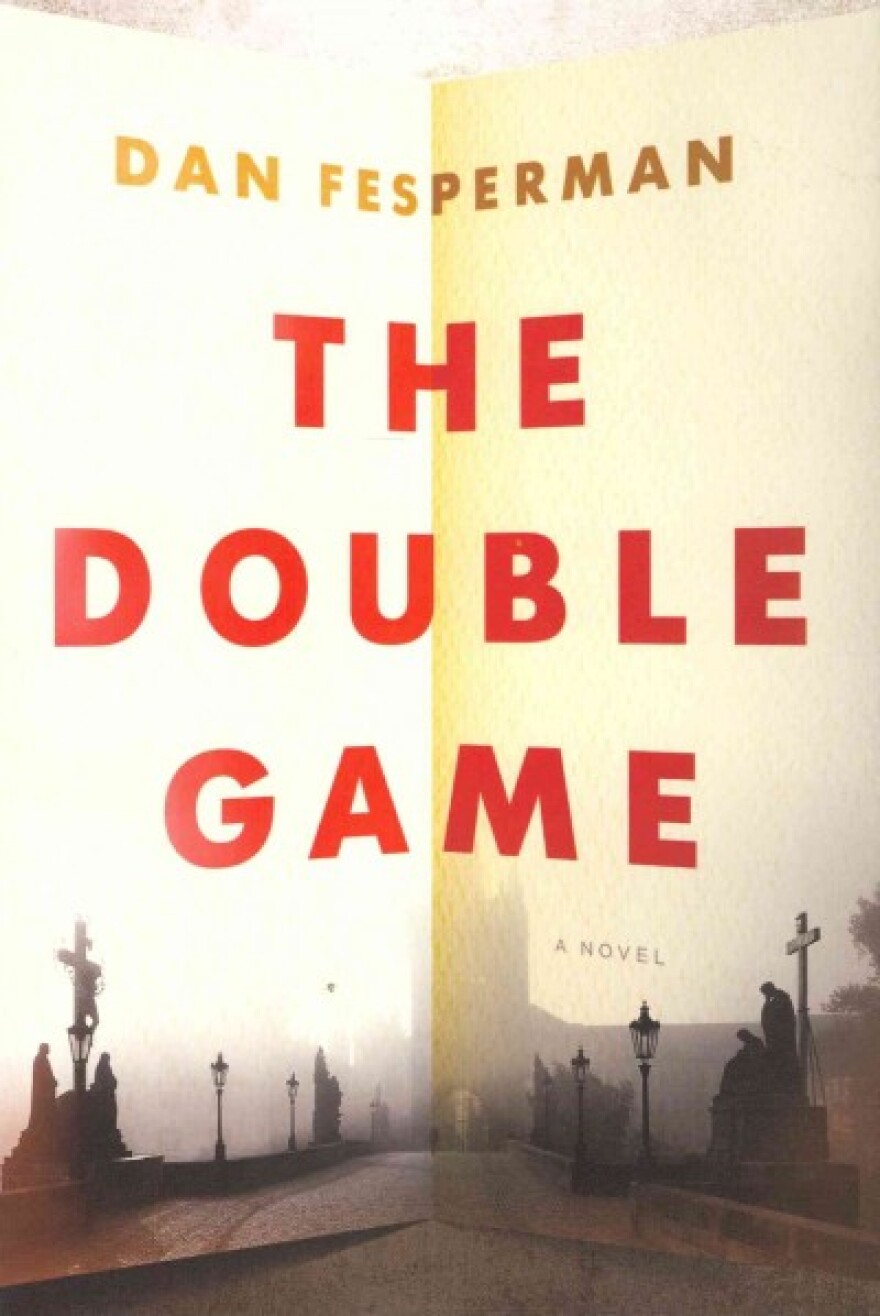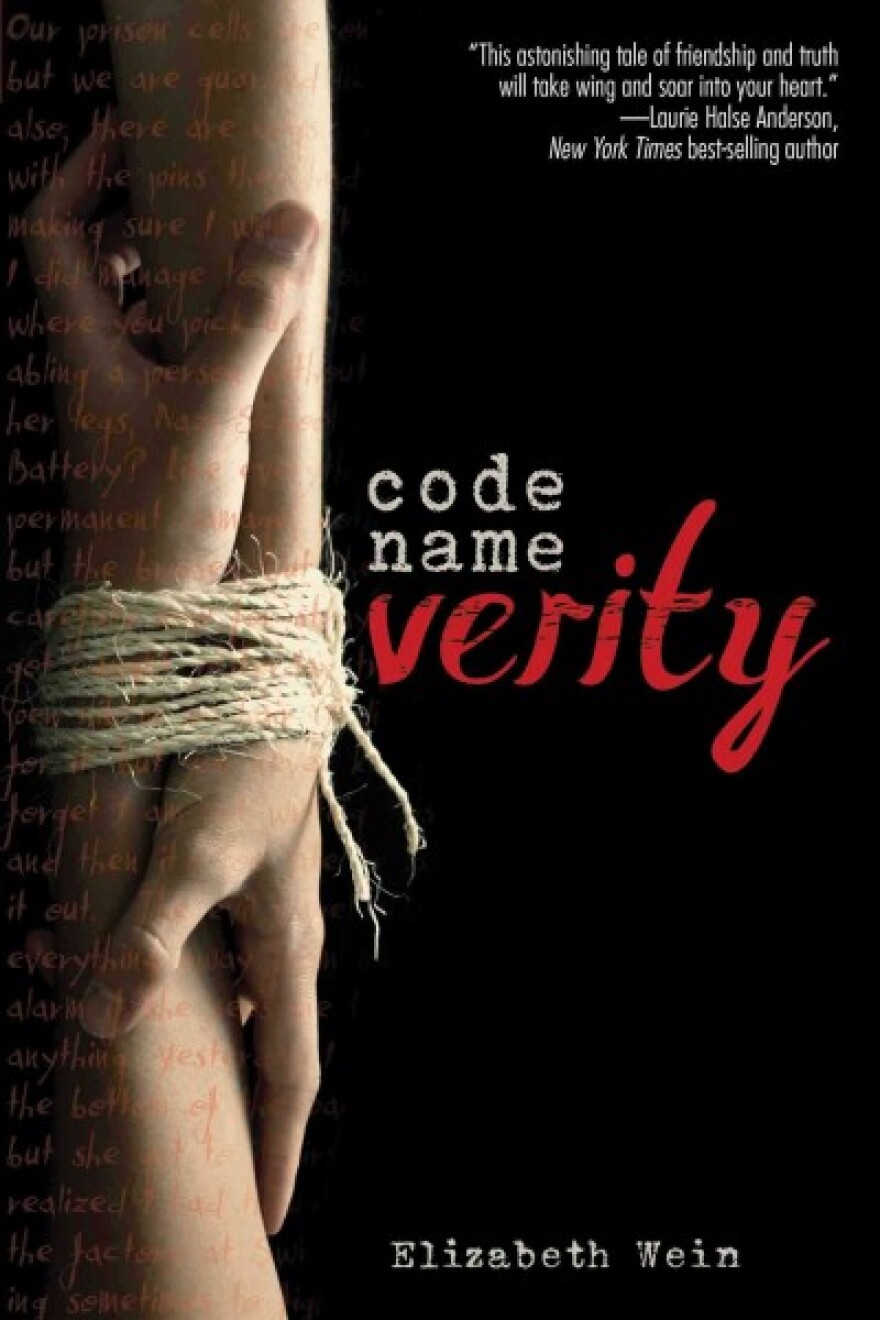I'm often asked how I choose the books that I'm going to talk about on Morning Edition's "Under the Radar" segments. Simple: I just pick some of the titles that I've most enjoyed since the last time I was on, without concern for whether they're fiction or nonfiction, genre or not, or aimed or classified as being for children or teens.
Because I am an omnivorous reader, at first glance my choices always seem to me to be completely higgledy-piggledy, with no book bearing any similarity to any other. Certainly some of these books have elements in common. Among Others and The Double Game could both be described as "booky." America Aflame and Color of Lightning are both about the Civil War. But beyond that, I can't see much that these titles have in common with one another besides my deep enjoyment of them.
Copyright 2024 NPR. To see more, visit https://www.npr.org.
Librarian Nancy Pearl Picks The Best Books Of 2012
The Towers of Trebizond

by Rose Macaulay
In the fall of 2004, Steve and I talked about great first lines, and one of the books I cited was Rose Macaulay's The Towers of Trebizond: "'Take my camel, dear,' said my Aunt Dot, as she climbed down from this animal on her return from High Mass."
An opening sentence as brilliant as that sets a high bar for the rest of this bittersweet comedy of manners (reissued in October by Farrar, Straus and Giroux) but Macaulay doesn't let us down. Aunt Dot, Father Hugh Chantry-Pigg and Laurie, the novel's narrator, are traveling through Turkey with a psychotic (and unnamed) camel in order to spread the blessings of the Anglican Church (especially important as Billy Graham and his followers have preceded them there). They also plan (in the case of Father Hugh) to search for relics of dead saints for his collection, collect material to write a book about their travels (Aunt Dot), and provide illustrations for the book (Laurie). One of the reasons this novel is endlessly fascinating is that Macaulay never tells us whether Laurie is a man or a woman. The clues she offers (an unhappy love affair and a country house weekend among them) only add to the mystery. Despite my regular re-readings of The Towers of Trebizond, I've never quite been able to decide. (I've also got to say that this new edition has the best cover of any that I've ever seen.)
America Aflame

by David Goldfield
I'm not exactly sure why I was so taken with David Goldfield's America Aflame: How the Civil War Created a Nation (Bloomsbury, 2012), but I think it's because it offers a view of the last decades of the antebellum period through Reconstruction years in ways that I had never before considered. Goldfield, a professor of history at the University of North Carolina, Charlotte, analyzes the role that evangelical Christianity played in the years leading up to the Civil War. In the first four decades of the 19th century, political leaders sought a middle ground between an individual's rights and the need for national stability (we're still searching for the right balance today, it seems). The new messianic fervor gripping both the Northern and Southern states didn't allow for compromise, and the result was a war that in the author's view could have been avoided.
But this isn't simply a history of the Civil War: Goldfield considers all aspects of American life from 1834 to the centennial year of 1876, including the building of the railroads, the California gold rush, treatment of Indians, and the effect of the growth of technology on American society. Goldfield's prose is graceful; I'd stop many times during the reading of the book just to appreciate the quality of his writing. And, like all the best histories, it made me carefully consider my own assumptions and beliefs about our country's past. I predict that it'll do the same for you.
We Learn Nothing

by Tim Kreider
Tim Kreider's We Learn Nothing: Essays and Cartoons is a remarkable collection. There were points in every one of them where I found myself nodding in agreement and wondering how he could so consistently express my feelings, and express them so much better than I ever could (or ever have). There are essays on how hard it is always to be appreciative of simply being alive (personalized by recounting the days, months and years following the time he was stabbed in the neck and almost died); gender (made meaningful by his account of keeping his friend, novelist Jim — now Jenny — Boylan, company for his convalescence following Boylan's gender reassignment surgery); meeting his birth mother and half-sisters (when he was in his 40s); and an especially lovely essay, "An Insult to the Brain," about mortality that was occasioned by spending a good deal of intense time with his mother when she was in the hospital, and reading Tristram Shandy aloud to her. It's the best analysis of and tribute to Laurence Sterne's novel that I've ever read: If this essay doesn't make more people want to read this 18th-century novel, I can't even imagine what will. This is not a memoir: Although we do learn a lot about the author, it's always in the context of some larger idea. Rather, it's a splendid example of what my old high school journalism teacher, Mr. J. Rodger Gow, described as "the personal essay."
Heft

by Liz Moore
At first glance, the two protagonists of Liz Moore's second novel, Heft, seem so dissimilar that it's hard to believe they even belong in the same book. Arthur Opp once taught literature to college students. Now he is 58, a recluse weighing 550 pounds, living in the house in which he grew up. Kel Keller is handsome and popular, an extremely talented high school baseball player who is hoping to make it to the bigs. Because I don't believe in giving anything away about the plot, all I will say is that discovering the connection between these two men, if they are, indeed, connected at all, will keep you reading this emotionally true (and often heartbreaking but never bathetic) novel.
And when you've finished and returned Heft to the library or lent it to a friend or archived it on your e-reader, you'll find yourself missing having the characters around. You'll wonder, while you're waiting for the light to change or kneading bread dough, what happened next. One of my very favorite Anne Tyler novels is Searching for Caleb. Reading Heft reminded me why. The authors' writing styles are not at all alike, of course (Moore seems to me to be much more straightforward and direct), but both Tyler and Moore have created characters that I'll probably never forget.
Among Others

by Jo Walton
Jo Walton's Among Others is one of those rare novels about adolescence that will appeal both to teen and adult readers. It won both the Nebula and Hugo awards for best novel. The narrator, Morwenna "Mor" Phelps, is a teenager who's sent off to boarding school after a devastating occurrence near her home in South Wales (the details of which Walton slowly reveals over the course of the novel) left her in almost constant pain, both physically and emotionally. What saves her is reading — in particular, reading science fiction and fantasy novels. While visiting the local library in the town nearest the school, she discovers that there's a whole group of SF fans that get together weekly to talk about books by writers like Ursula Le Guin, Robert Heinlein, Susan Cooper, Roger Zelazny, Andre Norton, James Tiptree and many more.
Walton not only offers up a compelling plot and a sympathetic and utterly believable main character in Mor, but also gives readers a passport to a world of future reading. At one time I might have considered myself pretty well-read in the area of speculative fiction, but no more. My to-be-read list grew by leaps and bounds as a result of Walton's novel. And my reading of the novel slowed down drastically as I kept pausing to check whether the books were available at the Seattle library, and to reserve them if they were. I was thrilled to find that Molly Templeton, a fellow fan, created a pinboard with the covers of all the books mentioned in Among Others.
The Double Game

by Dan Fesperman
Fans of spy novels will find much to love in The Double Game by Dan Fesperman. It's one of two novels on this list that I'd describe as "booky" books. (The other is Jo Walton's Among Others.) They're clearly born of the author's desire not only to give you a satisfying read, but also (equally important) to share some of his or her favorite books with you; Fesperman's is an homage to the spy novels written throughout the 20th century. Bill Cage, the son of a Foreign Service officer, grew up in the 1980s in Eastern European cities like Prague, Budapest and Vienna before he went off to college in the U.S. and became a reporter. The beginning of the end of his career came when Edwin Lemaster, an intelligence agent and novelist, revealed to Bill that he had once upon a time considered doubling himself and spying for the Russians.
Fast forward 20 years: Out of the blue, Bill, who now works for a PR firm in Washington, D.C., receives a cryptic note telling him he should have been more thorough in investigating Lemaster's troubling statement. And we're off: As Bill looks more deeply into Lemaster's past, it holds up a mirror to his own, intersecting with people Bill knew (including his father and former girlfriend) and with places he's lived. What's the truth? Who's living a lie? Sorry, but I'm not telling. You have to read The Double Game to find out. And I'm very grateful to Fesperman for including a terrific bibliography of spy fiction. It was great fun to read it over and find old favorites (Len Deighton's Berlin Game, Mexico Set and London Match, for example).
Code Name Verity

by Elizabeth Wein
Elizabeth Wein's Code Name Verity is an intensely moving novel for teens (although I suspect that adults will also enjoy it). It's one of those novels that are especially hard to talk about because it's vital to a reader's enjoyment not to give anything about the story away in a description or review. (John Green's The Fault in Our Stars is another example of this sort of novel.) I'd be tempted to simply say, "Trust me, just read it," and leave it at that, but I suspect that I need to add a bit more.
How about this: Set during World War II, Code Name Verity is a story of deep friendship, incredible bravery and the difficult choices that life sometimes forces on us. On a spy mission to France that's gone badly awry, the Nazis capture Julie. Only after several rounds of torture does she agree to write her "confession," which must include everything she knows about Britain's war plans, including details of the rumored Allied invasion of Europe. Meanwhile, her best friend Maddie, who piloted the small plane that brought the two to France, apparently didn't survive after it was shot down. (Julie, at Maddie's insistence, successfully bailed out before the crash.) And then the novel really picks up steam.
I urge potential readers not to judge Code Name Verity by its cover. Had I done so, I might never have picked it up and discovered one of the smartest, and best, novels of the year.




